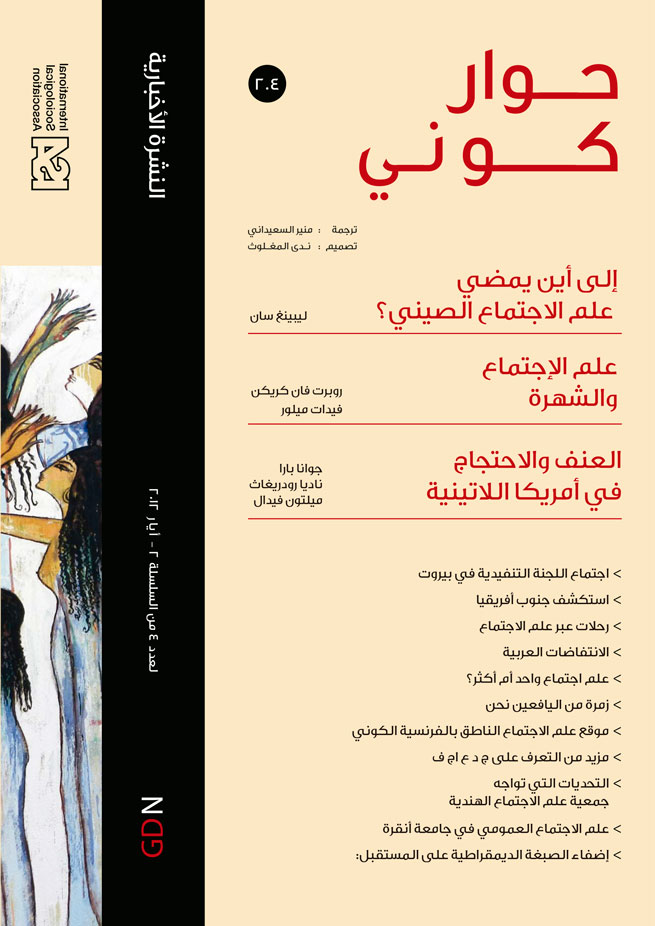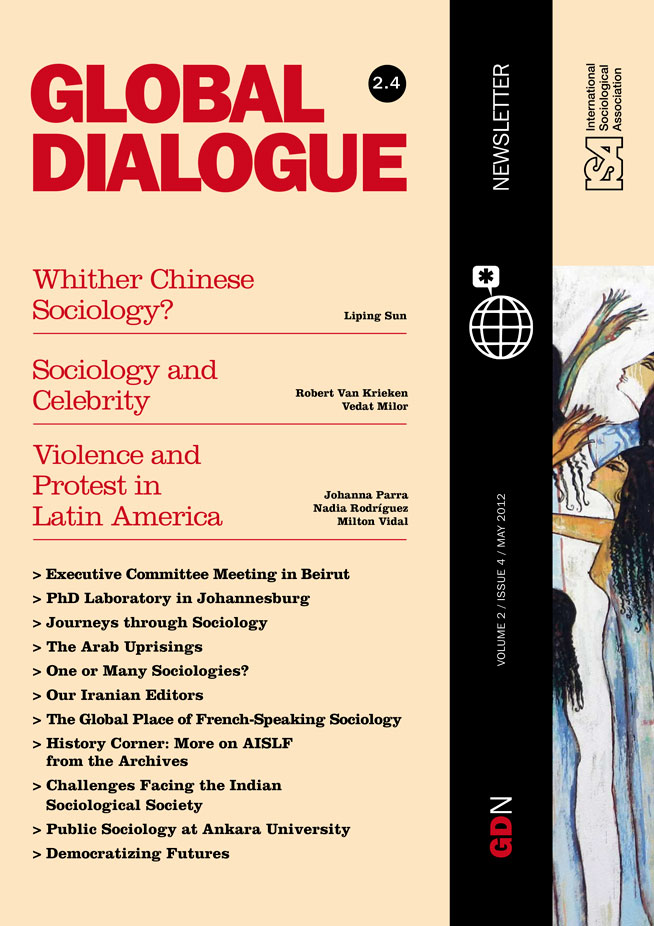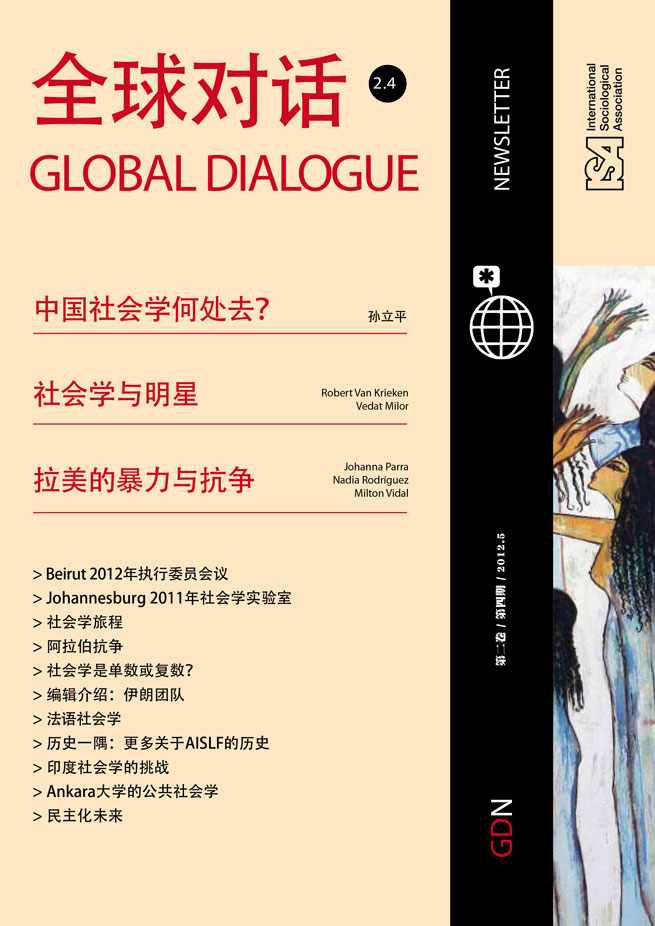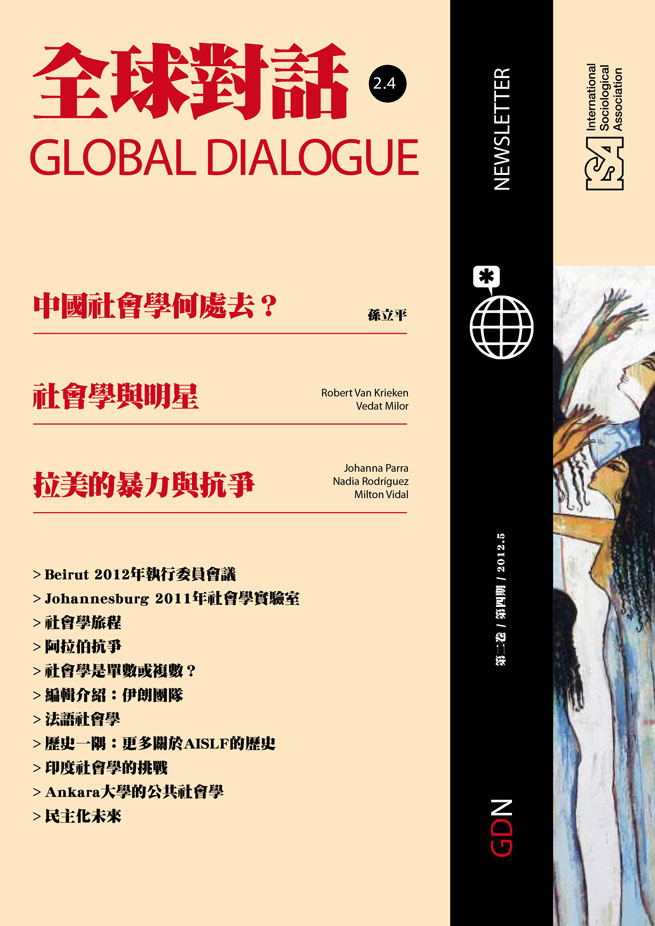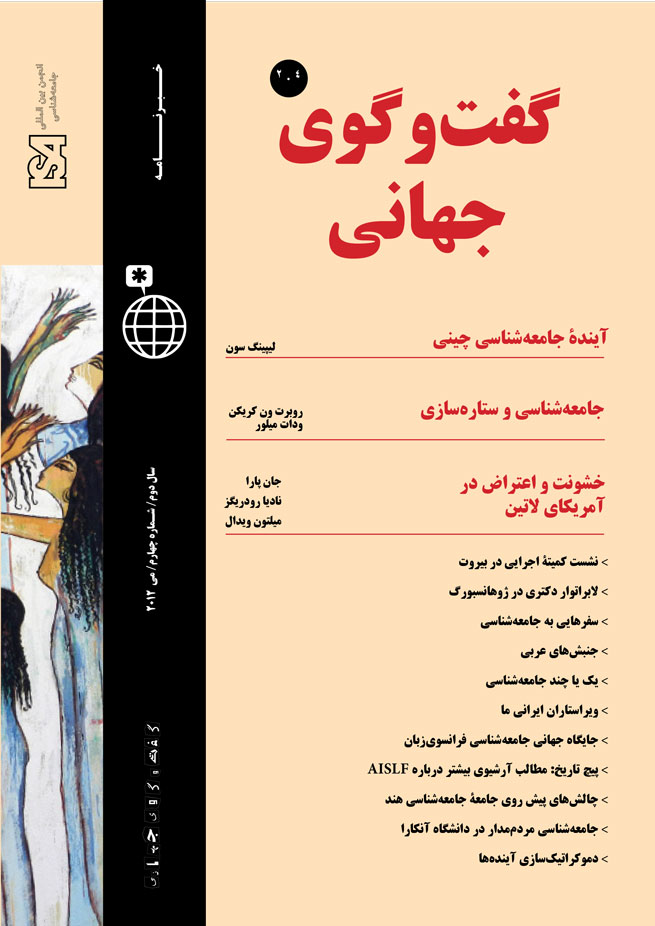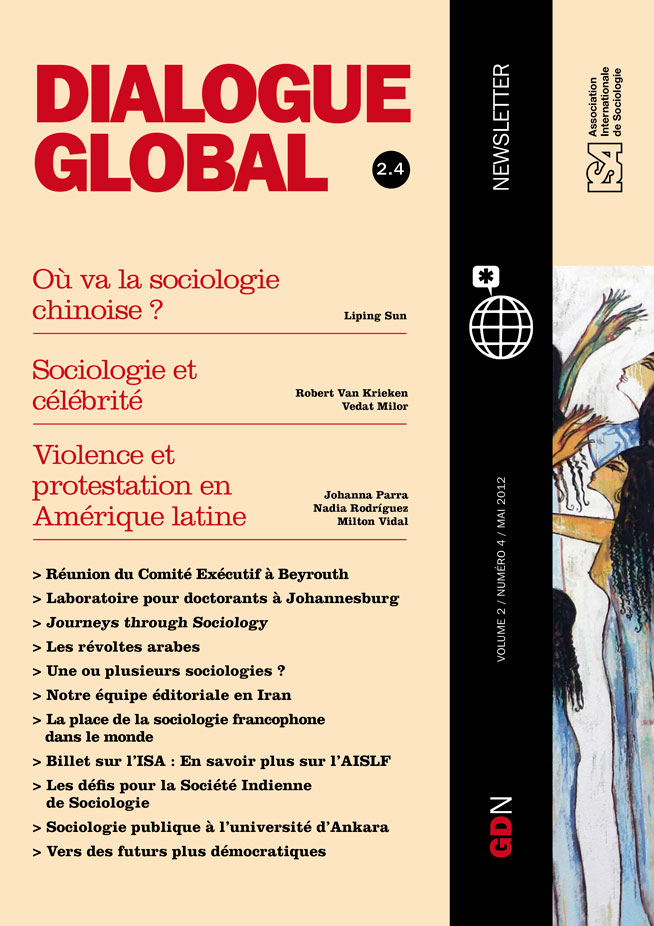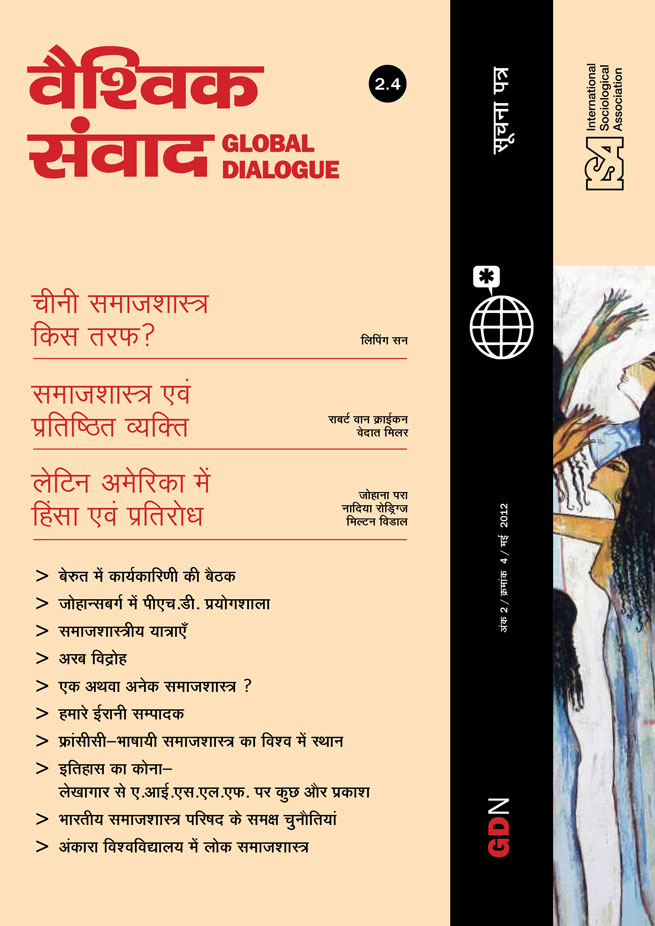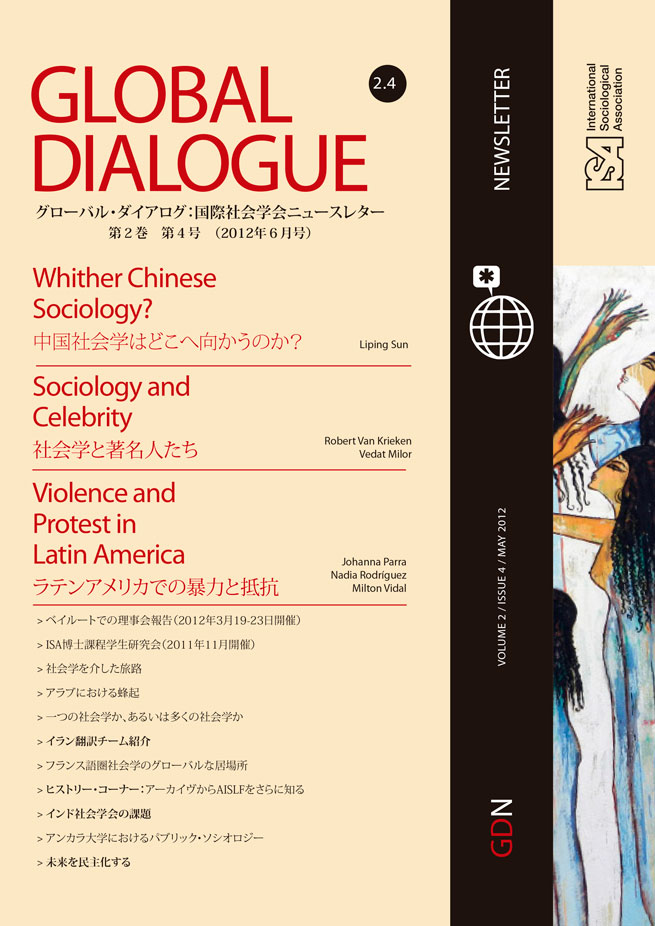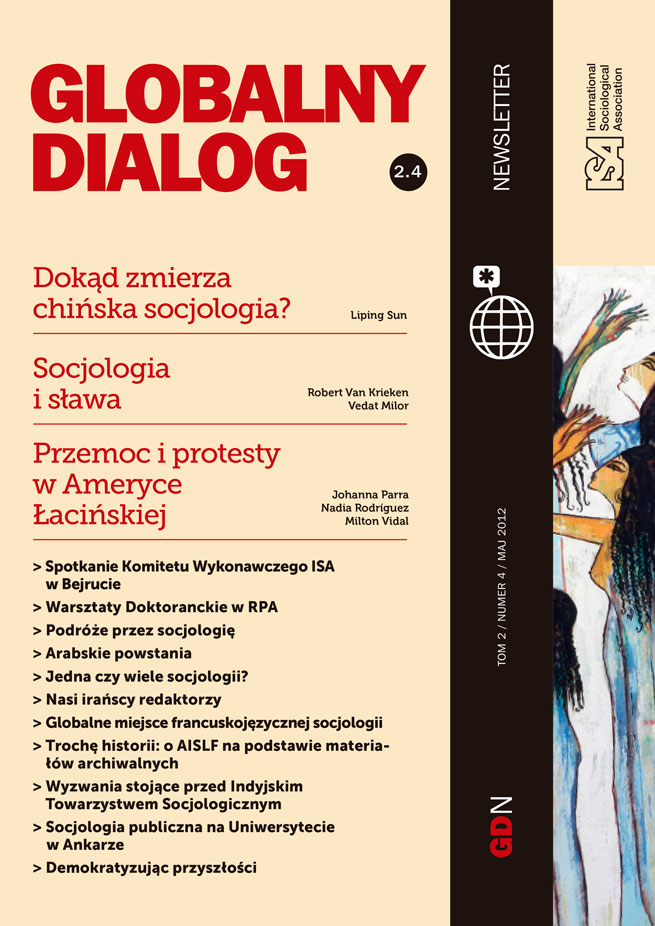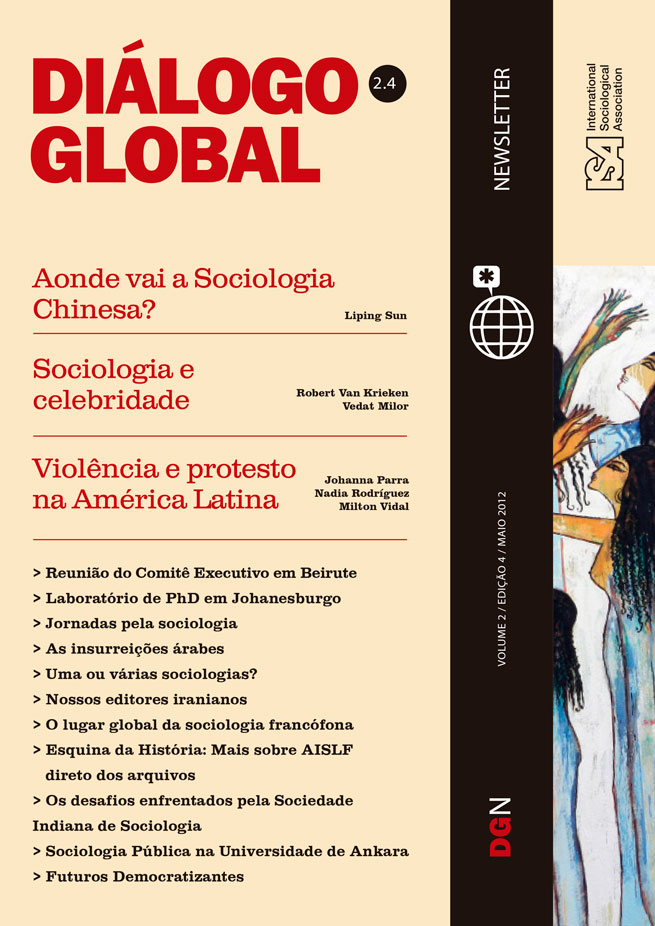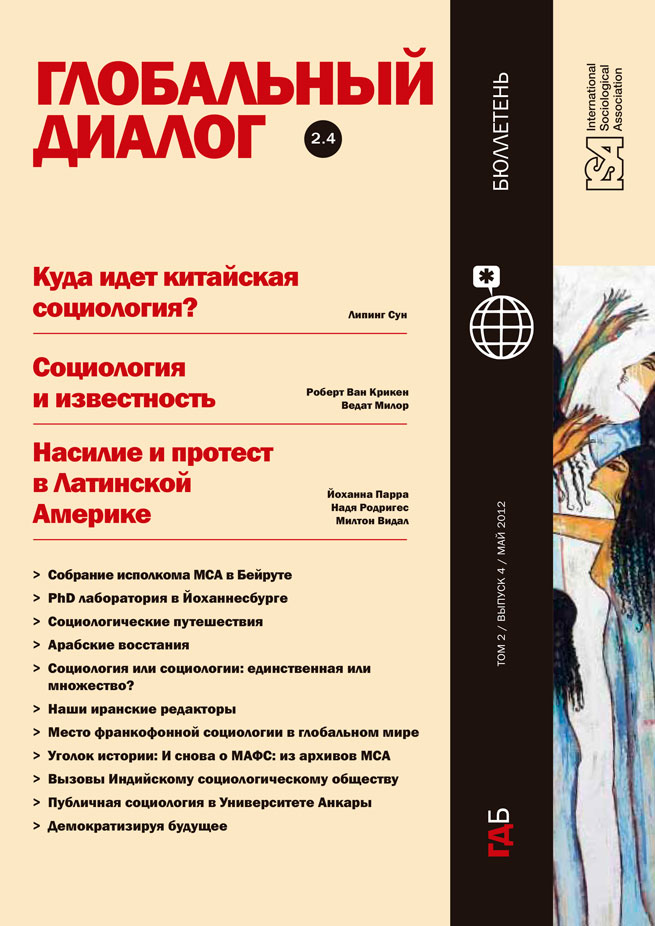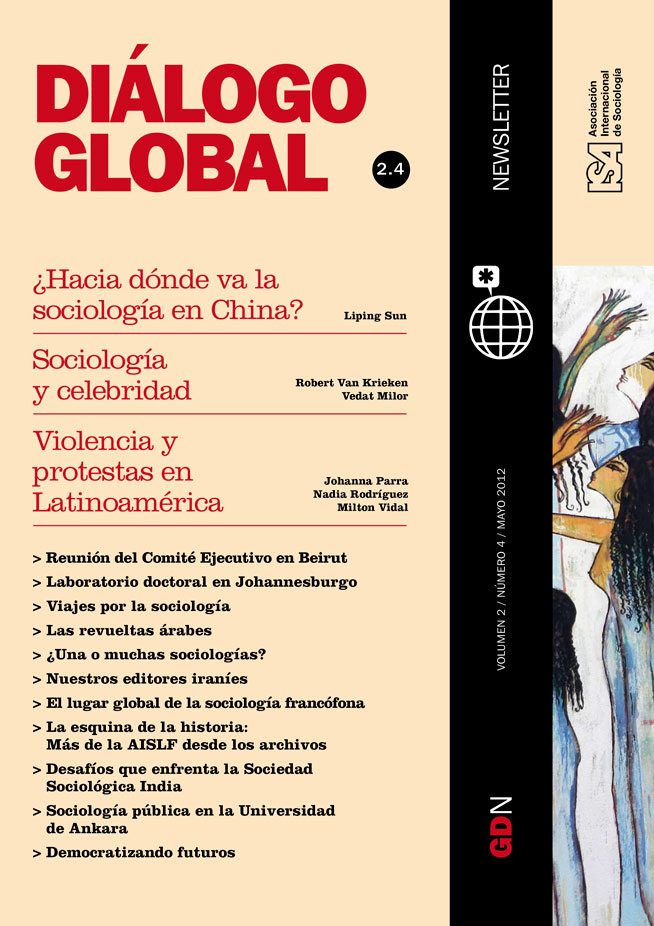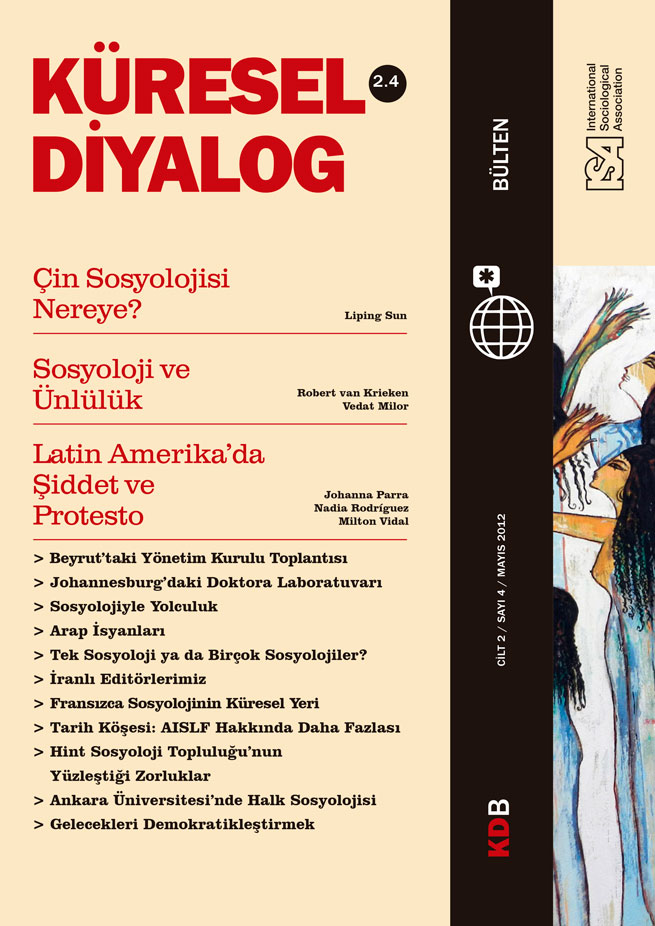Read more about Special Columns
Introducing the Editors: The Iranian Team
by Reyhaneh Javadi
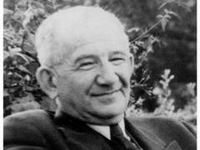
The Global Place of French-Speaking Sociology
by André Petitat
July 31, 2013
This note supplements André Petitat’s article with some more data and background information about the AISLF’s long relationship with ISA – at one time a relationship which reflected some internal frictions. The 1949 foundation of the ISA was initiated by UNESCO, whose headquarters have always been in Paris, so that the French language had a practical importance as well as a formal status there; historically, too, French was the language of international diplomacy, though this special status was shifting with the international dominance of the USA after World War II. The ISA’s two official languages were French and English – omitting the languages of the other countries with significant early sociology which had been on the fascist side in the war. As ISA became more independent of UNESCO the practical importance of French in its affairs lessened and, in reaction to this, the archives show that in 1954 French sociologist Georges Gurvitch proposed a francophone section of the ISA; this proposal was seen as undermining the ethos of internationalism, and not accepted. In 1958 the independent AISLF was therefore founded, at the initiative of Gurvitch and Belgian sociologist Henri Janne. However, by 1963 it joined ISA as a collective member; it probably helped that Girod, then ISA’s joint Secretary, was also a member of the Executive of AISLF!
ISA’s regular figures on its activities have always been kept in terms of national contributions, but it makes a difference to the picture if language rather than geographical location is taken into account. As Petitat points out, France has not been the only francophone contributor to the ISA; French Canada, Belgium and Switzerland have been quite prominent. From 1949 to 1956 ISA had an American president, while one of the vice-presidents was the French Georges Davy. Georges Friedmann then became president for 1956-9. There was then a long gap until the next francophone president, Michel Wieviorka for 2006-10, but over the years between there was always at least one francophone member of the executive, and for seven of the eleven terms there was a francophone vice-president.
In francophone settings (usually ones located in bilingual nations) there have been three World Congresses (1953, Liège; 1966, Evian; 1998, Montréal), and three of the Secretariats before the period when it settled in Madrid (1959-62, Louvain; 1962-7, Genève; 1974-82, Montréal). It is worth noting, too, that some very prominent ISA members not of francophone national origin, such as Anouar Abdel-Malek, have either held jobs in Paris for many years or have had strong and lasting intellectual connections there. Similarly, francophone migrants such as Jacques Dofny, who went to Québec from Belgium[1], have created important links. Thus, we can see how linguistic ties have helped to create links, as well as expressing separate identities.
This issue is not available yet in this language.
Request to be notified when the issue is available in your language.
If you prefer, you can access previous issues available in your language:
